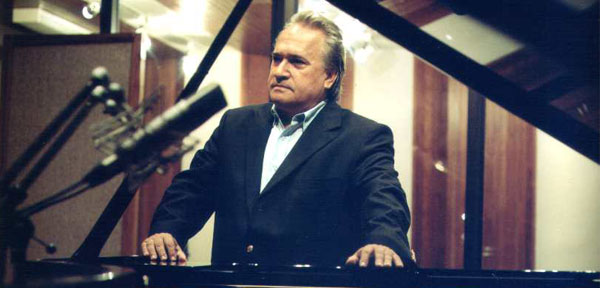A Lost Generation
By John Schauer
When I first saw that the repertoire for Frank Fernández's August 18 recital in Bennett Gordon Hall would comprise “Universal Classics of Cuban repertoire,” I was struck by the fact that I had absolutely no knowledge of the Cuban classical repertoire. Or even, for that matter, Cuban popular and folk repertoire. I fear that for many Baby Boomers, our unfortunate introduction to Cuban music while growing up was seeing Desi Arnaz singing “Babalu” on the classic I Love Lucy sitcom.
I suppose one could explain it by citing the complete political rift that existed between the United States and Cuba throughout most of our lives, but that isn’t really the reason. Relations were certainly no warmer between the United States and Russia, but Russian classical music is firmly rooted in the repertoires of symphony orchestras everywhere.
You might think I have no excuse for not knowing it after having been an undergraduate and graduate student of music history for eight years, but I realize how deficient my own education—at reputable institutions—was not only in Cuban but virtually all Latin American and even Spanish repertoire. By far the emphasis in studying music of the past is placed on the Italian model (Renaissance and Baroque) or German/Austrian (Classical and Romantic). To be sure, other traditions—French, English, Russian—were taught to us, but in far less detail and with far less time devoted to studying them in varying degrees. But the one that seems to have gotten shortest shrift was the Spanish/Latin tradition. A few composers, such as the Renaissance era’s Thomás Luis de Vittoria or, from the early 20th century, Isaac Albéniz or Manuel de Falla might be mentioned briefly. But the lion’s share of lecture time was devoted to Teutonic and Italian composers and repertoire.
This emphasis carried over into the realm of opera as well, not only in academic studies but even in the actual repertoire of the major opera houses. For a number of years, for example, New York’s Metropolitan Opera was dominated by German repertoire and artists, just as the Lyric Opera of Chicago was for a while associated with Italian opera. Viennese operetta appeared on stage and in academia, but the Spanish equivalent, zarzuela, was barely heard until such major opera stars as Plácido Domingo and Montserrat Caballé took up the cause and began featuring zarzuela repertoire in their concerts.
Fortunately things have changed since my salad days, and particularly with the current wealth of new works being written by Spanish or Latin American composers, one is far more apt to hear their works. In this, Ravinia’s audiences have particularly benefited, thanks to the repertoire and artists scheduled by Welz Kauffman, who has long championed an expansion of the so-called standard repertoire. Mr. Fernández’s August 18 recital is another installment of that expansion.

